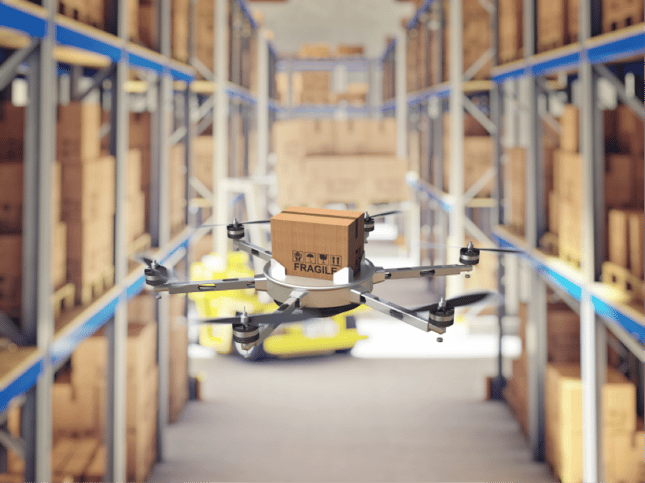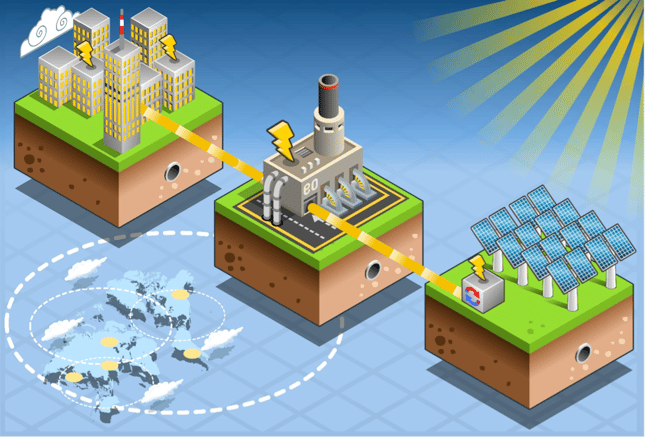

Just days after John Cabot University students start the new spring semester, over 2, 500 of the best minds in business, academia, and government will begin the first panel talks of the 2016 World Economic Forum in Davos-Klosters, Switzerland.
This year, the theme of the 46th annual WEF is “Mastering the Fourth Industrial Revolution” - a movement that, according to top economists, is set to impact everything from employment figures to the environment.
Studying Economics and Finance in Rome and want a quick overview of what panelists will discuss at Davos 2016?
Read on to discover exactly what the fourth industrial revolution is, and how it will impact global markets, business practices, and our relationship with the natural world over the coming years.
What is the Fourth Industrial Revolution?
World markets were forever changed by the first industrial revolution in the early 1800s. New breakthroughs in steam power led to tremendous leaps in productivity, and as new railways united vast geographies, transporting goods became easier and quicker than ever before.
With the second industrial revolution came electricity, conveyor belts, and the first assembly lines. And with the third industrial revolution, computers and the internet revolutionized production, supply chains, and employment trends once again.
In just a few years – by the time current students at universities in Italy are ready to graduate – the fourth industrial revolution will rev into high gear. It’ll be dominated by developments in nanotechnology, 3D printing, mobile networks, and artificial intelligence. And like the industrial revolutions that came before it, the fourth wave will ramp up production, speed up supply chains, and automate jobs.
Automation & Obsolescence: The Realities of our Changing Workforce
To get at the heart of how automation will impact lives across the globe, WEF is hosting panels on topics such as, “The Future Drives and Flies Itself” and “Disrupting Global Supply Chains,” which will examine how self-driving cars and drones will revolutionize logistics and make supply chains more efficient.
Panelists will also delve into how these changes will affect employment trends as truck drivers, warehouse managers, and other previously human-staffed positions are replaced with automated technology.

As jobs such as driving trucks, cleaning premises, delivering goods, and working in fast food restaurants face total automation, other panels will take employment predictions one step further and explore the possibility of “A World without Work” and what that would mean both socially and economically.
Protecting Cyberspace and the World Marketplace
As artificial intelligence and mobile networks become more sophisticated, production lines, cars, and even homes will become “smart” hives of activity.
While these developments will open up a whole new world of opportunity for businesses, they may also prove fertile ground for criminal activity.
That’s why keeping current and future infrastructure safe is a top priority – for both business leaders and governments alike. “Confronting Cybercrime” and “Big Data vs Human Touch” are two among many panels at the World Economic Forum that will discuss how companies and governments can protect infrastructure and prevent terrorist attacks, while respecting the privacy of ordinary citizens.
But cybersafety isn’t the only hot security issue facing economists. With global commodity prices taking a nosedive in 2015, panels like “A New Era for Extractives” will examine what a continued downturn might mean for global markets. Protecting against future market meltdowns is also top on the agenda for panels such as “Preventing Future Shocks” and “Mitigating Risks in the Digital Economy.”
Environmental Sustainability: Can Econ Students Anticipate Greener Business Models?
If you’re planning to study finance in Italy this year, you are no doubt aware that sustainability is a growing concern for policy-makers and business leaders around the world. And with 2015 currently holding the title for warmest year on record, it’s no surprise that climate change is a hot topic at WEF as well.
At Davos 2016, panels like “Around the World without Fuel or Fear” will explore new frontiers in green technology - including solar powered planes! “Decarbonizing Economies” will also take a look at how businesses can adopt greener goals and methodologies – paving the way for a more sustainable, productive, and profitable future.

And there you have it! These are some of the top themes, panel topics, and hot button issues driving discussions at Davos 2016. Which aspect of the fourth industrial revolution do you think will most impact world markets and economic policy during the year ahead?
Planning to study economics in Rome?
Visit John Cabot University to learn more about our Economics and Finance program, and how you can enrich your educational experience by studying abroad in Rome!




